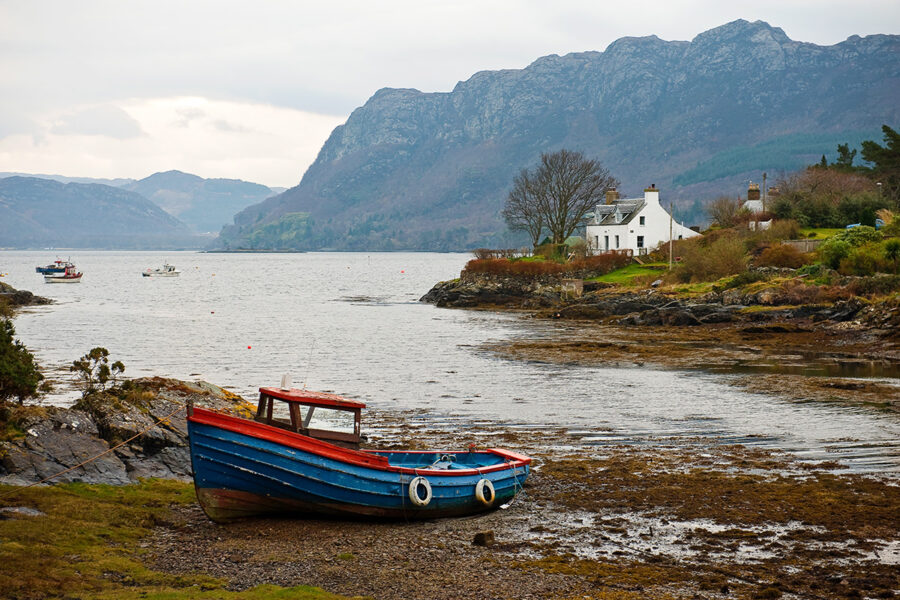A Holyrood debate on Scottish government support for the fishing industry over the next decade failed to secure any commitments on the scrapping of Highly Protected Marine Areas (HPMAs).
Answering questions from MSPs, energy and environment minister Gillian Martin, who is responsible for Scottish inshore fisheries, sidestepped questions on whether the ‘hated’ HPMAs had been ditched or merely put on hold, saying this was matter for Màiri McAllan, the cabinet secretary for net zero.
Conservative MSP Liam Kerr said that North East fishing communities had expressed ‘cautious delight’ when the plans for HPMAs were halted as a result of warnings that they would ‘close 47% of our waters to fishing and decimate the industry’.
“However, almost immediately, government minister Lorna Slater and Ariane Burgess MSP said that the Scottish government will still bring in the HPMAs as they are a red line in the Bute House Agreement,” Liam Kerr told Gillian Martin.
“Can this minister clear up the Scottish government position? Have the hated HPMAs been ditched, or was the pre- recess announcement simply a cynical delaying tactic?”
Gillian Martin referred MSPs to the statement on HPMAs that Màiri McAllan gave to the Scottish parliament on 29 June, in which she said that although the government remained committed to enhancing marine protection, ‘the proposal as consulted on will not be progressed’.
“That means that we will no longer seek to implement HPMAs across 10% of Scotland’s seas by 2026,” Màiri McAllan told MSPs. She said a new pathway and timetable would be developed and that she would ‘ensure that communities across Scotland are central to the process’.
Gillian Martin added: “We want to ensure that communities across Scotland are central to
any process in which we involve them.” The Scottish government played an active role in supporting and managing Scotland’s ‘vital’ fishing industry, and would continue to do so, she said.
SNP MSP Kate Forbes asked the minister how the government’s long-term support plans would protect the Scottish fishing industry from the ‘disaster politics of the Tories and Labour, neither of whom offer support to the Scottish fishing industry’.
Gillian Martin said the effects of Brexit on the Scottish fishing industry had included higher export costs, barriers to trade, loss of access to labour and ‘broken promises about lost EU funding being replaced in full’.
“This government will always champion Scotland’s fishing industry and do all that we can to support it, and we will adapt and innovate to ensure a just transition to a sustainable and resilient fishing fleet,” she said.
“That includes annual negotiations in which we work to secure the best outcomes that we can for Scottish fishing businesses. However, as long as we are part of the United Kingdom, whether there is a Labour or a Tory Westminster government, we in Scotland will not have a direct seat at the table.”
Inshore Management: Data ‘will be absolute Sbedrock of decisions’
Scottish government plans to install monitoring cameras (REM) on under-12 vessels will transform the level of data available on inshore fisheries, Gillian Martin claimed.
“I think that that will be a game changer with regard to what we see in the marine environment. We will know what is where, and when,” the minister told MSPs.
She noted that a consultation on inshore tracking and monitoring for under-12m vessels is open until 7 November.
Scottish Green Party MSP Maggie Chapman asked the minister what the benefits would be from applying a cap on current high-impact fishing activity in Scotland’s inshore waters.
“We are not proposing any cap,” said Gillian Martin. “We are looking to use science and the available data from our fishing fleet to have a better idea of what species are where in Scotland’s inshore waters. That will be the absolute bedrock of any decisions that we make in future.
“It is not a case of applying caps as such; it is a case of knowing what is where, where we need more sustainable fishing methods, and what species we will protect and allow to thrive more through the decisions that we make. It all has to be based on scientific data.”
This story was taken from the latest issue of Fishing News. For more up-to-date and in-depth reports on the UK and Irish commercial fishing sector, subscribe to Fishing News here or buy the latest single issue for just £3.30 here.
Sign up to Fishing News’ FREE e-newsletter here.








